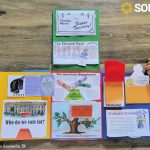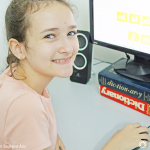With thoughtful planning and creativity, you can incorporate learning into everyday summer activities and avoid the summer slide, while still having a fun-filled, well-deserved summer break.
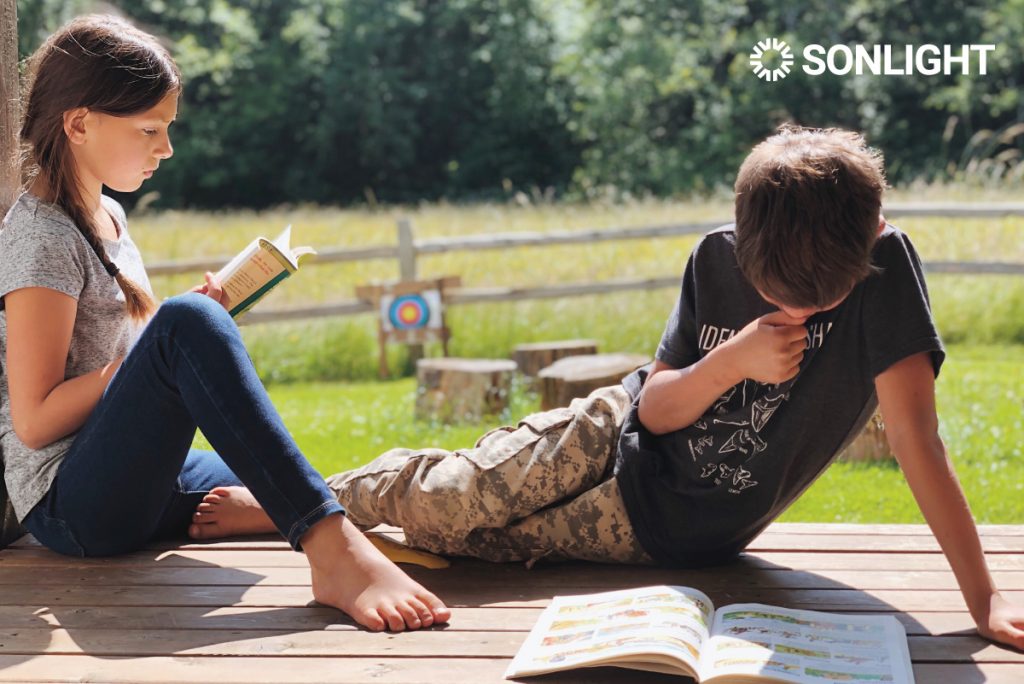
Summer vacation brings sunshine, outdoor adventures, and a much-needed break from your normal homeschool routine. However, this extended break from structured learning can lead to what educators call the "summer slide."
What Is the Summer Slide?
The summer slide refers to the academic regression that happens when children are away from regular educational engagement during summer vacation. Without consistent practice, children can lose critical academic skills they worked hard to gain during the school year. This learning loss can happen in any subject area and can require re-learning past material.
Summer Slide Statistics
Researchers have been concerned about the summer slide for decades, with studies going back to the 80s showing that children lose a lot of math and reading learning over summer break. In a 2020 study, children in 3rd to 5th grade reportedly lost around 20% of reading and 27% of math progress during the summer away from school.
- 5th and 6th graders can experience the greatest decline in math, with 84% of these students experiencing learning loss.
- Students with a learning loss can fall behind their peers by up to three years by the time they reach 5th grade.
- Over two-thirds of reading gaps that high schoolers experience originated in elementary school because of summer learning loss.
- Over 50% of the gaps in reading achievements can be attributed to unequal opportunities to access summer learning.
So, how do you prevent the summer slide?
Avoiding the Summer Slide: Continued Learning
The key to avoiding the summer slide is to keep learning throughout the summer, which can mean making learning a natural part of your summer routine. Consider the following practical ways to incorporate learning opportunities into the mundane parts of your routine:
- Planning a trip to the grocery store? Transform this routine errand into a learning experience:
- Have your child write down the grocery list, reinforcing spelling and handwriting skills.
- At the store, ask them to read aisle signs, weigh produce, count items in your cart, or read nutrition labels. These activities practice reading, math, and critical thinking skills without feeling like schoolwork.
- Making lunch or dinner? The kitchen is a natural classroom:
- Invite your child to read recipes aloud as you cook together, measure ingredients (reinforcing fractions and measurement conversions), and discuss the science behind cooking processes.
- Younger children can sort ingredients by food groups, while older kids might research the cultural origins of different dishes.
- Taking a car ride or road trip? Travel time offers perfect opportunities for learning games:
- Host a themed spelling bee, asking your child to spell words related to where you’re traveling or a show you all love.
- Challenge kids to read passing road signs.
- Play the alphabet game with billboards and store names.
- Listen to educational podcasts designed for children, such as InquisiKids.
- Spending time outdoors? Nature provides endless learning possibilities:
- Point out different animals, insects, and plants you encounter.
- Use apps like Merlin to identify birds by their songs.
- Research the history of local parks or natural landmarks before visiting.
- Create nature journals where children can sketch and describe their observations, integrating science, art, and writing practice.
- Pick an animal or insect to read and learn more about.
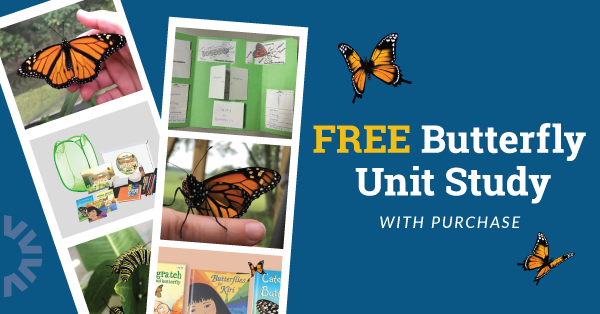
*Offer valid May 1-31, 2025 while supplies last.
- Spending the day at home? Indoor days needn't be educational wastelands.
- Play board games that reinforce math, vocabulary, or strategy skills.
- Complete puzzles together to develop spatial reasoning.
- Learn new skills like drawing, cursive writing, or simple crafts.
- Establish pen pal relationships with co-op friends or distant relatives, encouraging regular writing practice.
- Create a summer scrapbook documenting adventures and learning experiences.
More Ways to Stop the Summer Slide
Your children can also keep learning when you:
- Introduce a summer reading program. Sonlighters are no stranger to how much reading can bring learning to life for their children. When it comes to how to prevent the summer slide, reading just 15 minutes each day can make a huge difference. Finding a summer reading program can incentivize your child’s reading.
- For teens: High School Summer Reading List
- For middle schoolers: The Top Summer Reading List For Middle Schoolers
- For elementary schoolers: The Ultimate Summer Reading List for Elementary Students
- Bring learning to life with hands-on projects. Hands-on activities create memorable learning experiences while developing critical thinking skills. Science kits like Sonlight’s Discover & Do kits provide structured experiments that make scientific concepts tangible. Building projects, art activities, and cooking challenges also offer opportunities to apply academic concepts in practical ways.
- Visit educational places. You can use your free time to explore museums, science centers, zoos, local historic sites, and other educational attractions. Even if you go to the beach, you can make it educational by having your child research the history of the area or read books about beach-fun days.
- Encourage them to keep a summer journal. Writing a diary entry each day can help them maintain writing and storytelling skills. While younger children may draw a picture and write a short caption, older children can create longer reflections.
- Consider summer camp. Summer camps are a great way for kids to keep learning while having fun and connecting with others. Some camps even cater to special interests (i.e., space camp, forensics camp, etc.). We recognize that summer camps can get expensive; consider DIY-ing summer camp at home.
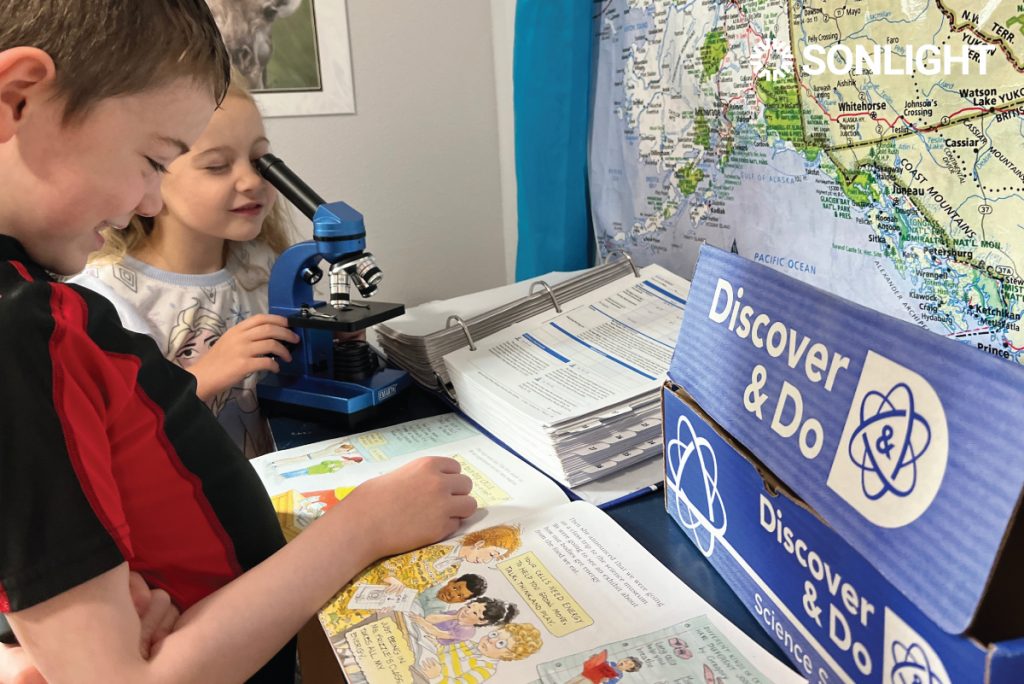
Summer Learning Is Important, But So Is Fun!
As we consider how to prevent the summer slide, remember that summer should remain a time for relaxation, outdoor play, family bonding, and adventures. You don't need to continue full homeschooling through summer (unless that works for your family).
Instead, look for natural ways to blend learning into enjoyable activities. The most effective summer learning happens when children are engaged and don't realize they're practicing academic skills.

From Unit Studies to Discover and Do science kits, great readers and books, and hands-on learning kits, Sonlight is here to help you avoid the summer slide and keep learning year-round.


